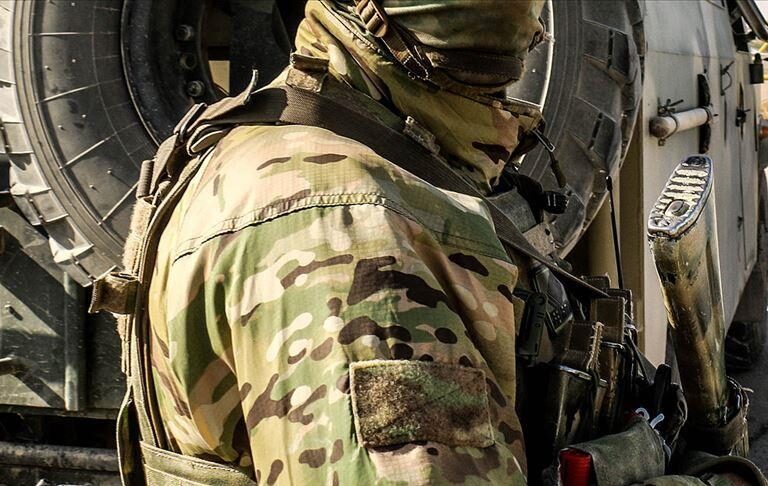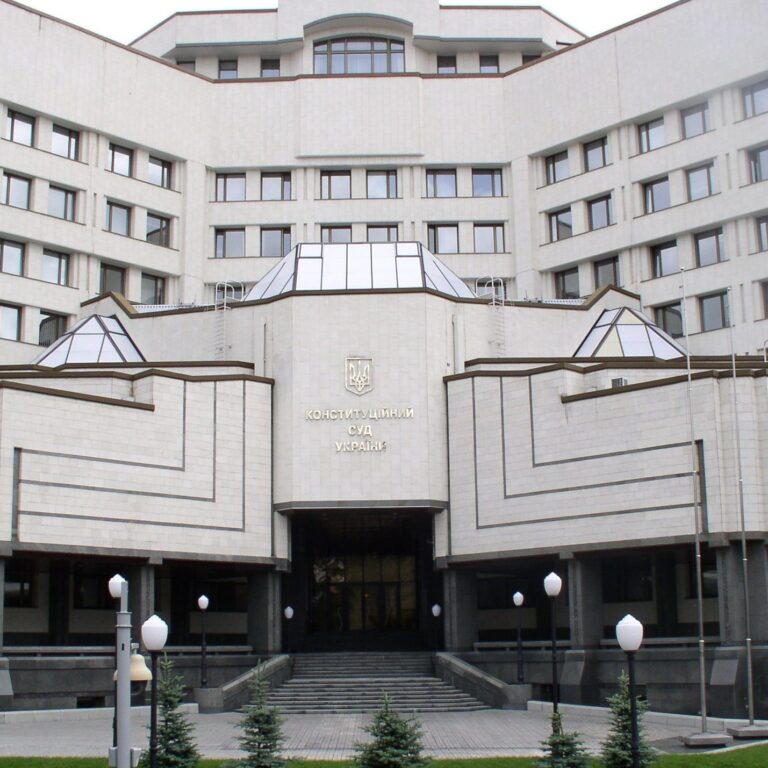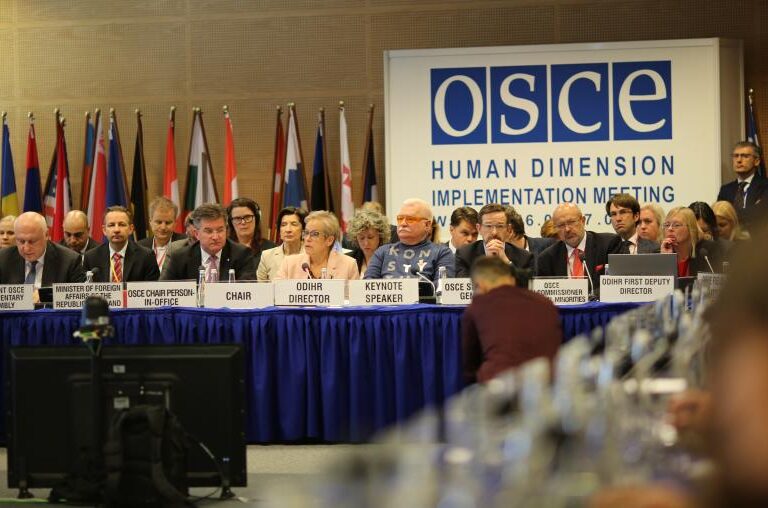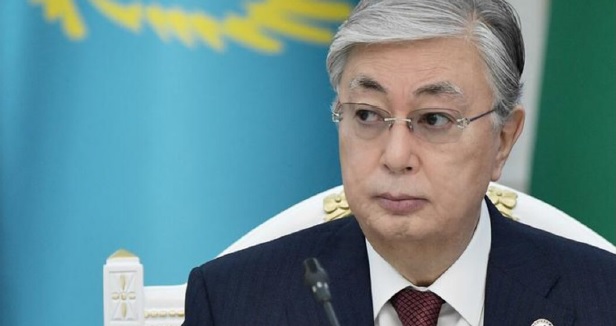The morning of Saturday, October 29, was not quite in Sevastopol. Media reports that unknown unmanned aircraft and water vehicles attacked the main naval base of the aggressor state. There is information about damage to ships, including the flagship – frigate “Admiral Makarov”. The Ukrainian side does not confirm, although it does not deny, its involvement in this attack [1]. The Russian Ministry of Defense, in turn, called the event a “terrorist act” and announced Russia’s “withdrawal from the grain agreements” concluded in the summer, 2022. The representative of the Russian Foreign Ministry announced an intention to convene the UN Security Council [2].
Apparently, the authors of the Geneva Conventions would be very surprised if they learned that a party to an international armed conflict calls an alleged attack by another party to conflict on its warships an “act of terrorism”. Previously, even Russian officials did not go so far as to call the sinking of the cruiser “Moskva” or the detonation of amphibious ships in the port of Berdyansk as “terrorism”. However, since this was the argument from the Russian side, the ARC will try explore why the attack on warships is not a terrorist act, and also why the Russian side resorted to such rhetoric. Expert in international judiciary Oleksii Plotnikov researched this issue.
Since more than eight years ago, the Russian Federation and Ukraine have been engaged in armed conflict, as defined by international humanitarian law. This conflict is governed by the international law of armed conflicts, which distinguishes between military objects that may be attacked and civilian objects that must not be attacked. The definition of a military object is contained in the second part of Article 52 of the Additional Protocol (I) to the Geneva Conventions, according to which, “military objects are limited to those objects which, by their nature, location, purpose or use, make an effective contribution to the military actions and complete or partial destruction, capture or neutralization of which under the current circumstances gives a clear military advantage” [3].
It is rather strange to prove that a battleship is a military object, and therefore a legitimate target of attack, but for the Russian Ministry of Defense we will explain that, by its nature and purpose, a battleship exists solely to make an effective contribution to military operations, and its destruction gives a clear military advantage. It is impossible to invent any other purpose for a floating object that is used for shelling Ukrainian cities with “Caliber” missiles and serves as the flagship (and therefore the headquarters) of a large naval group. It is no less obvious that the destruction of this object gives a clear military advantage to Ukraine, which in this way reduces the enemy’s ability to conduct military operations at sea. The same considerations apply to other ships that are believed to have been damaged in the attack on Sevastopol Bay. These are legitimate military targets that Ukraine had every right to attack. As far as is known, no civilian object was damaged by the attack.
But is there a hypothetic situation when an attack on a military object will be considered terrorism? According to Article 2(1)(b) of the International Convention on the Suppression of the Financing of Terrorism, terrorism is considered any act aimed “to cause death or serious bodily injury to a civilian, or to any other person not taking an active part in the hostilities in a situation of armed conflict, when the purpose of such act, by its nature or context, is to intimidate a population, or to compel a government or an international organization to do or to abstain from doing any act” [4].
It is not known about the death of civilians or people who do not take an active part in hostilities as a result of the attack on the ship in Sevastopol. If there are victims of this attack, they could be exclusively military personnel, which excludes the possibility of considering this event as an act of terrorism. It is clear that the explosions in Sevastopol could scare the population, but it is clear that the purpose of the attack on the ship was not to intimidate civilians, not to make “politic demands” but to destroy a military object. Thus, there is nothing to consider the attack on Russian ships in the port of Sevastopol on the morning of October 29 as an act of terrorism.
After a short story about the obvious, let’s ask the question: why do Russian officials make such blatant and senseless distortions? Why does the Ministry of Defense make statements about terrorism, which cannot help but understand that it can call terrorism, for example, the shelling of military warehouses by Ukrainian missile forces.
An apparent explanation is an attempt to evade accountability. After all, the army is responsible for a military defeat, as damage to the fleet’s flagship and other ships at its own base is precisely a military defeat, whereas “law enforcement services” are liable for a terrorist attack. However, the support of these statements by the Russian Ministry of Foreign Affairs, which viewed the attack in the bay of Sevastopol as a “terrorist act” and announced the “withdrawal from grain agreements” under this pretext, suggests that it is not an attempt by one of the aggressor’s agencies to abdicate responsibility, but rather a “state position”.
The Russian Federation itself associates this position with the “exit from the grain agreements”. Allegedly, the violation of the agreements occurred on the part of Ukraine, so Russia is “not bound by them any longer”. According to the agreement, no warships, planes, unmanned aerial vehicles (UAVs) can approach the maritime humanitarian corridor. However, as the editor-in-chief of the “BlackSeaNews” Andriy Klymenko rightly wrote, “where is the corridor, and where is Sevastopol?” [5]. The remoteness of the main Russian base from the agreed route of the grain corridor clearly demonstrates the groundlessness of Russian claims. In addition, the question remains: what is “terrorism” for?
There appears to be only one plausible explanation for this situation: victim blaming. The Russian despot, who maintains power through electoral fraud, accuses the Ukrainian government of being “illegitimate”. As an aggressor nation, Russia accuses Ukraine of “aggression”. The Russian army, which employs terror as a weapon of warfare against civilians, accuses the Ukrainian army of “assaulting civilian objects”. Russian diplomacy, seeking a chance to disrupt grain agreements, accuses Ukraine of “breaking agreements”. Now that the likelihood of Russia being widely recognized as a state sponsor of terrorism is more likely than ever, it has resorted to its customary tactic of accusing the opponent of doing what it is doing itself.
ARC has written numerous times [6], [7] on why Russia’s acts should be regarded terroristic, so we will not repeat ourselves.The resolution of the Parliamentary Assembly of the Council of Europe dated October 11, lists actions that enable qualification of the Russian actions as terrorism [8]. It includes threats to use nuclear weapons and provocations against nuclear facilities in Ukraine, continued artillery shelling of civilian facilities, destruction of civil freedoms in Russia and the occupied areas, hacking assaults, extortion of the international community, etc. The possibility of identifying Russia as a terrorist in the European Parliament [9] and the United States Congress [10] appears imminent. There are few opportunities for the aggressor state to avert this development, and one of them is to drown the choice in a lengthy debate. Accusing Ukraine instead of Russia appears to be an attempt to generate a debate topic by associating the victim with the aggressor and dragging out the inevitable.
What exactly is Russia trying to avoid by accusing Ukraine of terrorism, and why now? After all, some states have already recognized the Russian Federation as a terrorist state; for example, Ukraine did this in the spring [11]. The fact is that in international law there is neither the special status of a terrorist state or a terrorist regime, nor a separate procedure for recognizing a certain state or regime as a terrorist. Recognition of a state as a terrorist takes place at the level of individual states and international organizations. For most states, this is a legal and political step that has some symbolic meaning, but in the case of the USA and the EU, it can have immediate, concrete and negative consequences for the Russian regime and Russian elites.
The United States’ recognition of Russia as a terrorist state will not only place Russia in the same disreputable club as Cuba, Iran, North Korea, and Syria, but it will also prohibit US citizens and companies from engaging in any financial transactions with the Russian government and impose strict controls on any transactions suspected of involving Russian legal entities. Russian property in the United States will lose its immunity and may be sold under court order. Individual sanctions will affect not only state-owned companies and officials, but also thousands of people associated with them, making it nearly impossible for Russian money and people associated with this money, such as the relatives of high-ranking Russian officials, to remain in the United States.
In addition, American sanctions may potentially harm foreign individuals and organizations that conduct business with the terrorist state. This will significantly complicate any foreign purchases made by Russia, especially those relating to the development of weapons. It should be highlighted that the seizure or sale of Russian property in the United States is only permissible to satisfy the claims of American citizens. Do not anticipate that these assets can be immediately used to compensate Ukraine. But this is unlikely to comfort the Russian elite and the Russian defense-industrial complex, which will finally lose access to American money and technology. For a detailed analysis of the consequences of recognizing Russia as a sponsor of terrorism in the United States, see the material prepared by the Institute of Legislative Ideas [12].
As for the European Union, it lacks a particular procedure for identifying a state as a sponsor of terrorism at the EU-wide level [13], but this does not make the potential identification of Russia as a sponsor of terrorism any “more palatable”. The first probable outcome is the acceptance of pertinent judgments by the member states, based on the decisions of the European Parliament. The result will be the imposition of new sanctions and legal restrictions in EU member states, in accordance with anti-terrorism legislation. The second possible repercussion is the implementation of restrictive measures such to those employed by the European Union to combat terrorist organizations and persons and businesses suspected of aiding terrorists. This will result in the extension of European sanctions to any companies doing business with Russia, not just Russian ones. As for real persons, the European sanctions lists will affect not just those linked with Russia’s ruling system, but also those who are associated with or financially support these individuals.
The identification of Russia as a state sponsor of terrorism by the Council of Europe and individual nations was a political act also. Its potential identification as a terrorist state by the United States and the European Union will result in a new level of sanctions that can inflict a severe blow to any import of technology into Russia as well as to the wallets of regime representatives. It is not unexpected that the aggressor is attempting to avoid this by all means necessary, including terrorism accusations against Ukraine. Russia summoned a meeting of the United Nations Security Council on October 31. And it was clear that Russian arguments regarding alleged “Ukrainian terrorism” were rejected and they will not be able to slow down in future the process of recognizing the aggressor state as a terrorist sponsor in the United States and the European Union.
1. https://www.bbc.com/ukrainian/news-63437633
2. https://fakty.com.ua/ua/svit/rosiya/20221029-pidryv-flotu-rf-ta-zryv-zernovoyi-ugody-shho-vidomo-pro-vybuhy-u-sevastopoli/
3. https://zakon.rada.gov.ua/laws/show/995_199#Text
4. https://zakon.rada.gov.ua/laws/show/995_518#Text
5. https://www.facebook.com/permalink.php?story_fbid=pfbid027wNPoU3fmW7ncTF2bz9Uy2NdNhFZzLKthfLQ93hnRYW7wDKDMRfDHiNzCPQ8KPKjl&id=100003576664760
6. https://arc.construction/36303?lang=uk
7. https://arc.construction/33572?lang=uk
8. https://pace.coe.int/pdf/1f8702a790f20dff3019431f3c84f0933d99e66fdcc20d2af25222ae7f712cf3/resolution%202463.pdf
9. https://kyivindependent.com/news-feed/eu-parliament-to-vote-on-recognizing-russia-as-state-sponsor-of-terrorism
10. https://www.ukrinform.net/rubric-polytics/3589578-us-congress-to-consider-recognizing-russia-as-state-sponsor-of-terrorism.html
11. https://zakon.rada.gov.ua/laws/show/2265-20#Text
12. https://izi.institute/research/vyznannya-rosiyi-derzhavoyu-sponsorom-teroryzmu-yak-ukrayina-vygraye-vid-czogo-finansovo/
13. https://www.eeas.europa.eu/eeas/russia-speech-behalf-high-representativevice-president-josep-borrell-ep-debate-possible_en







